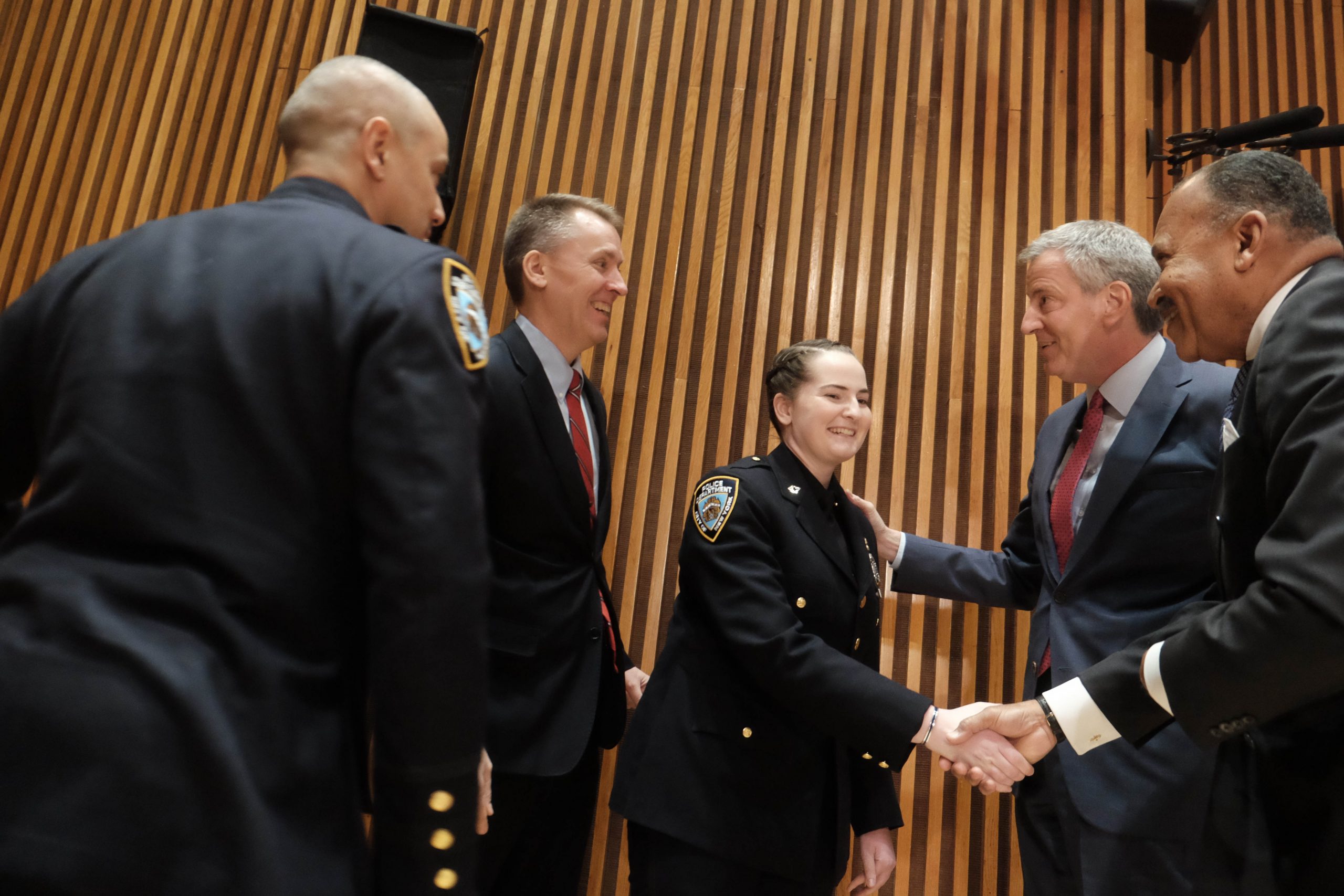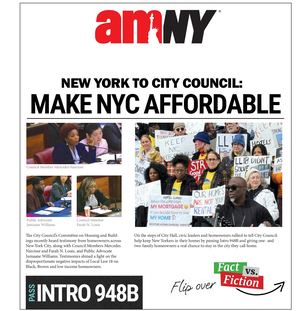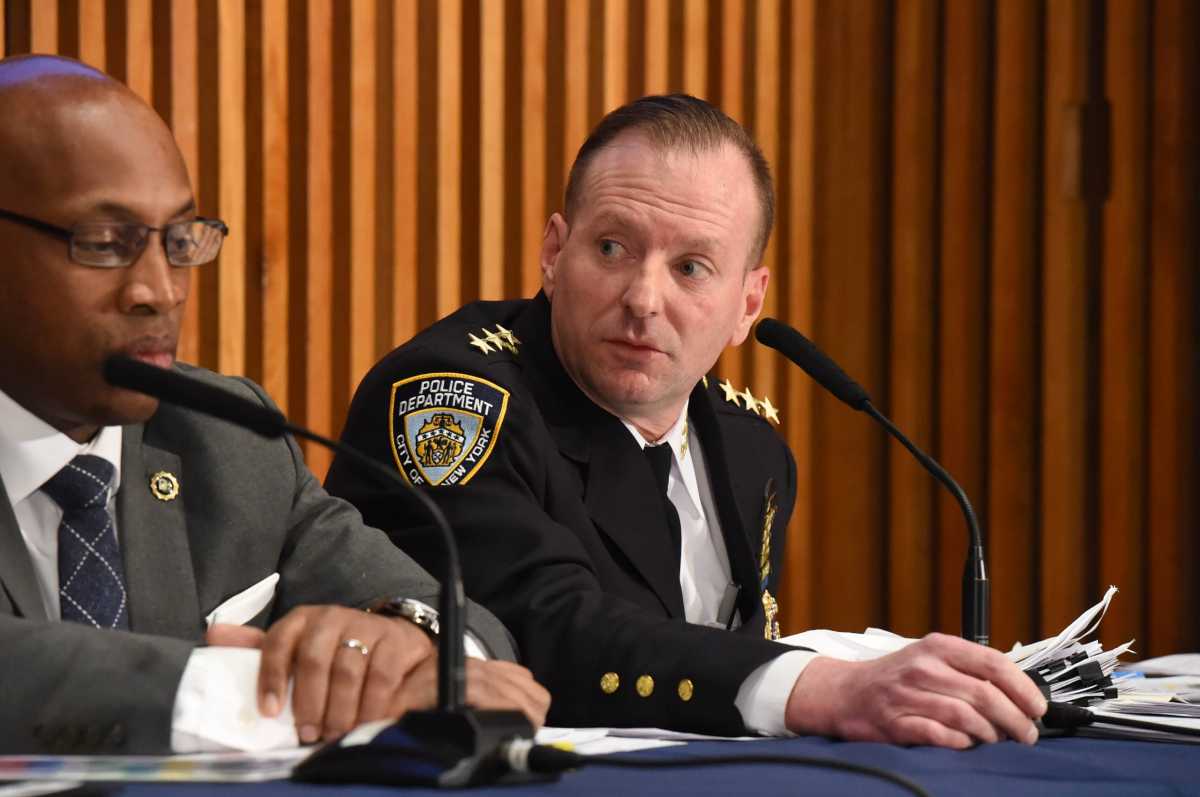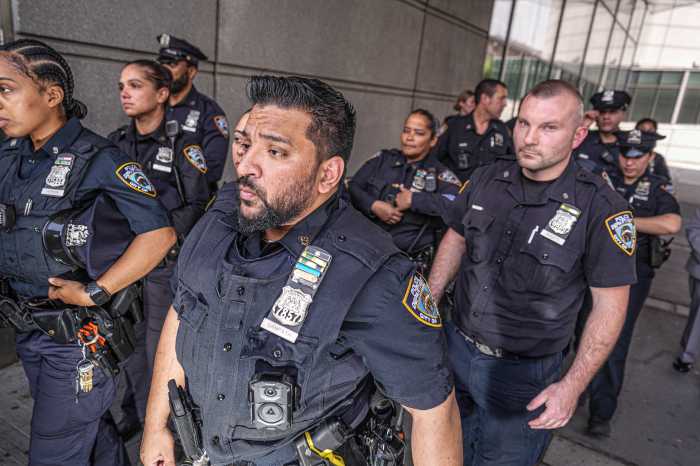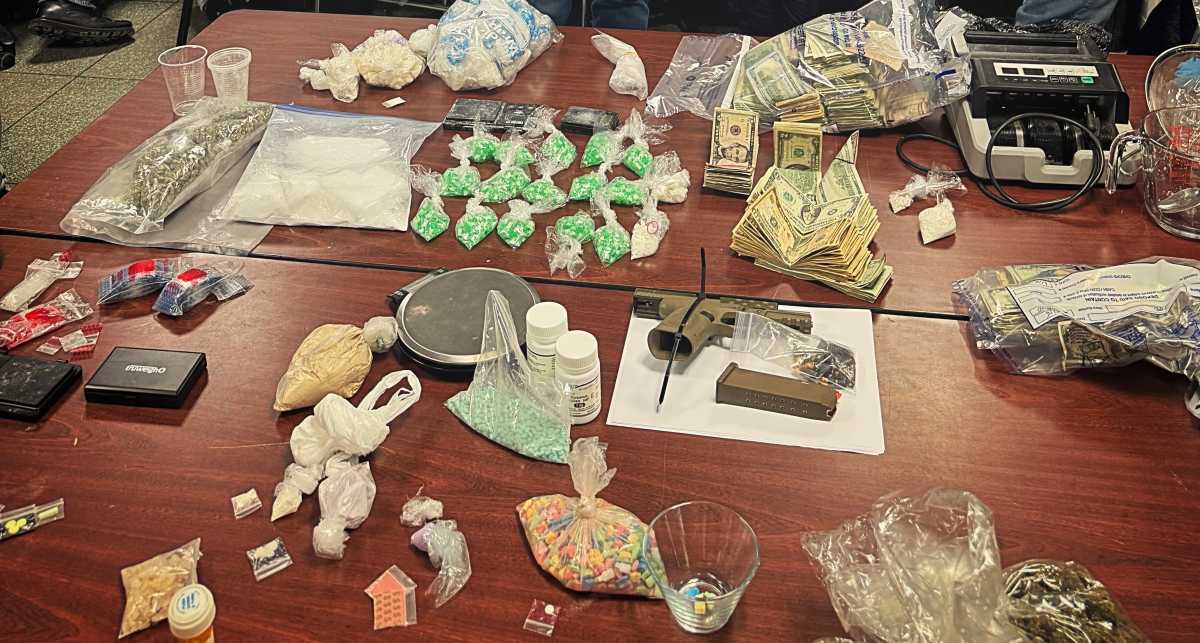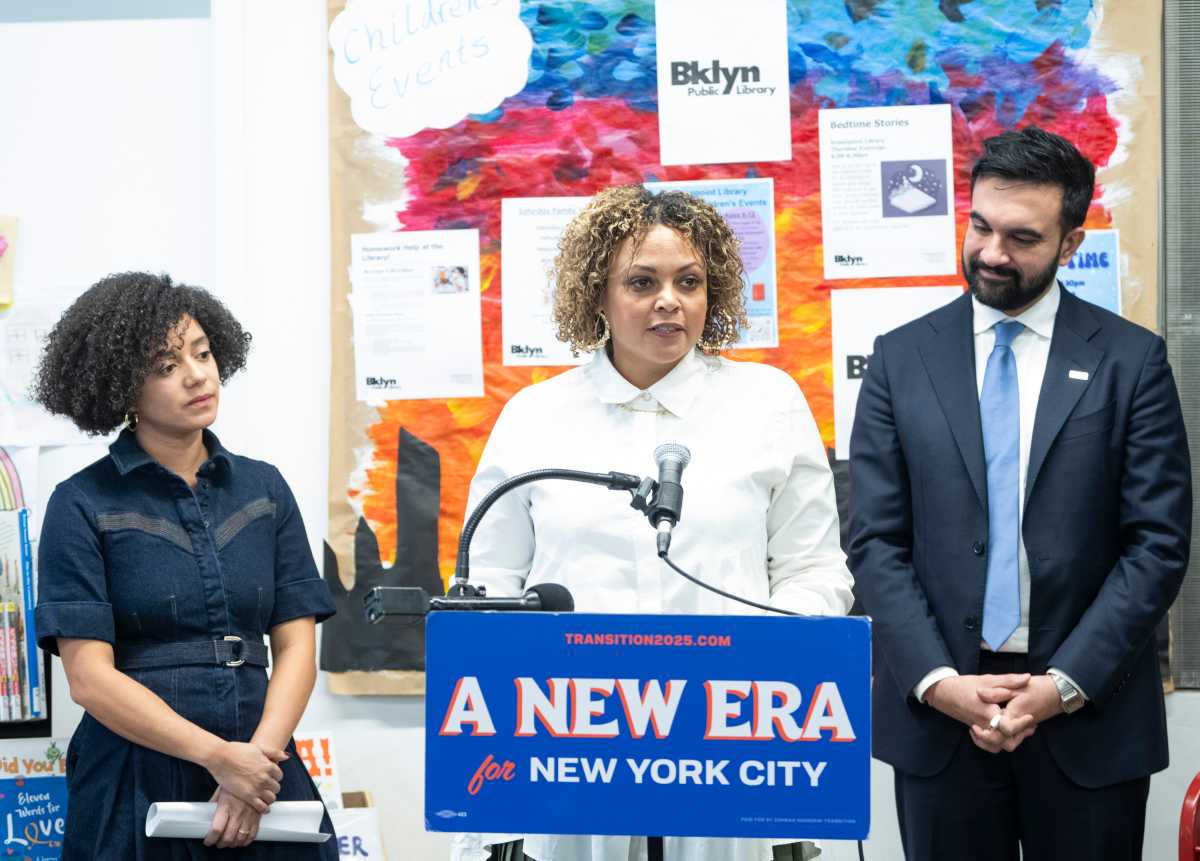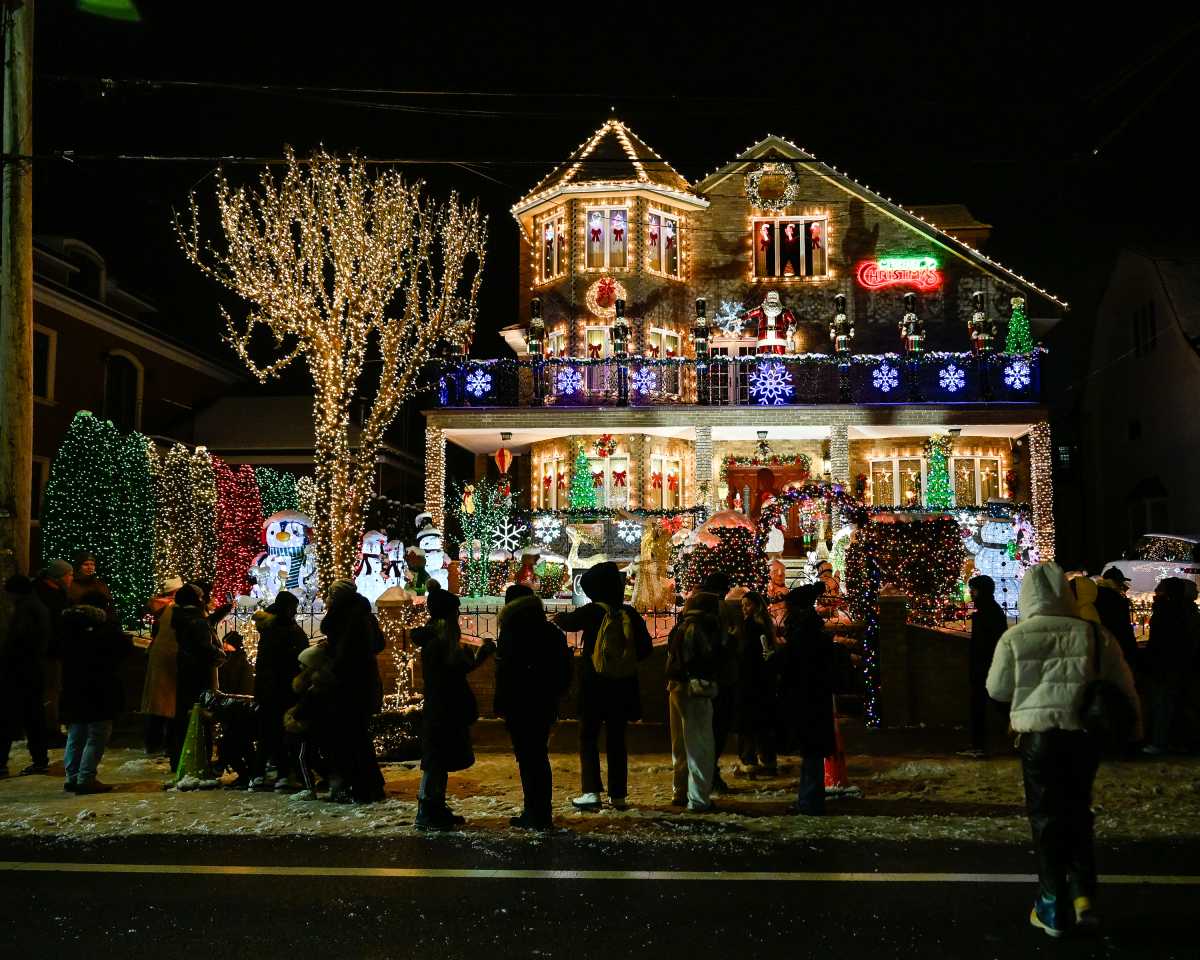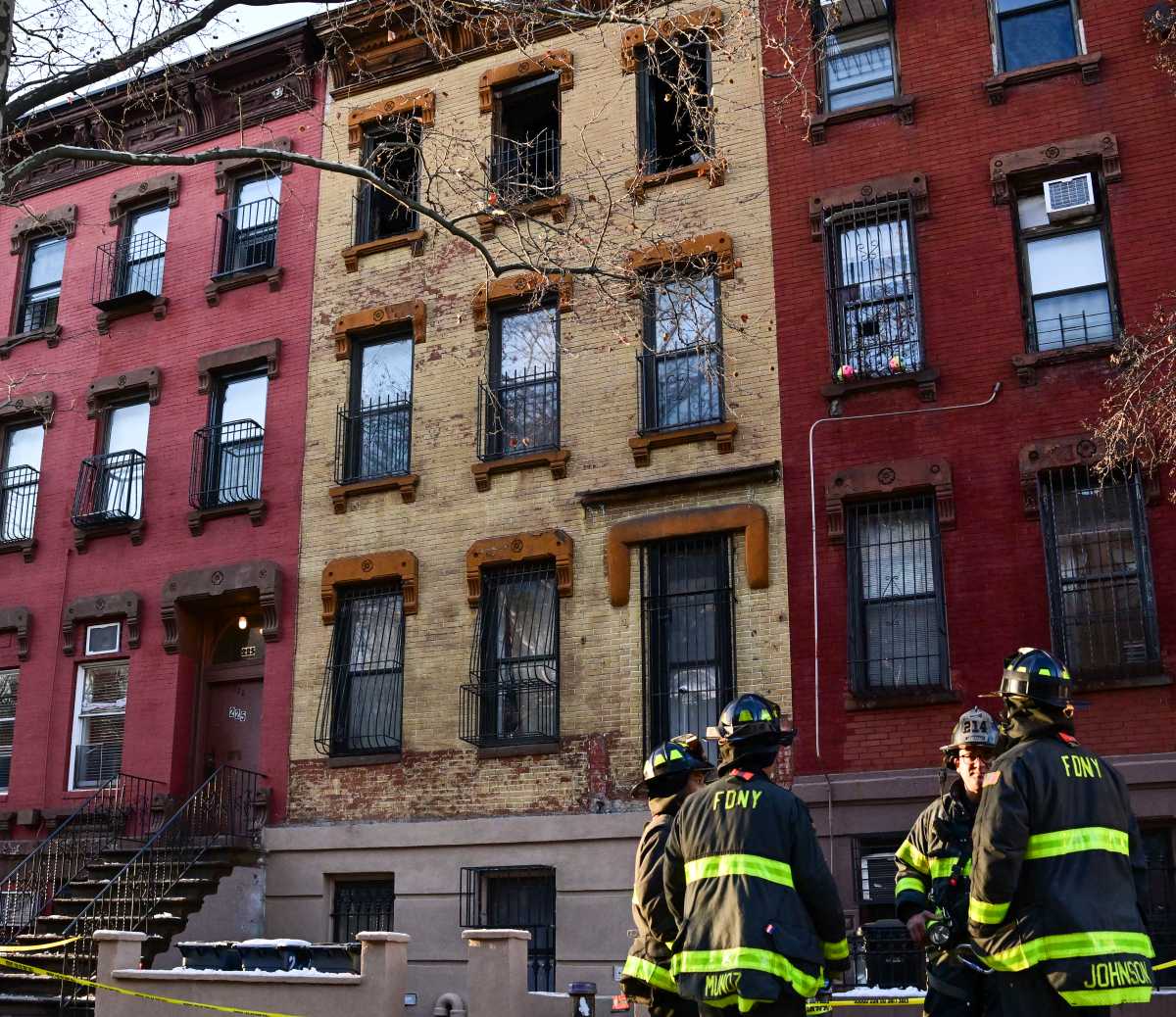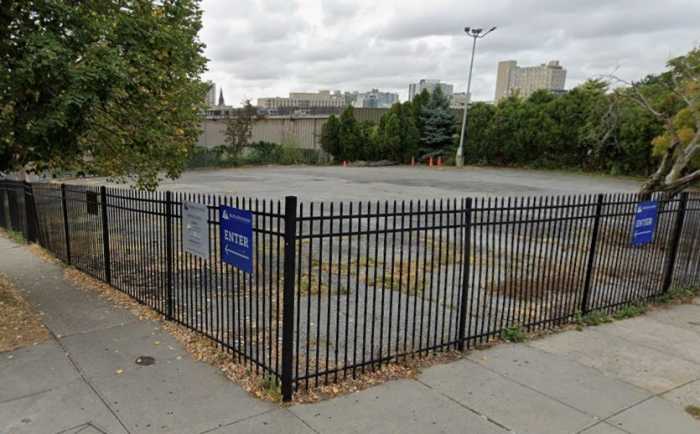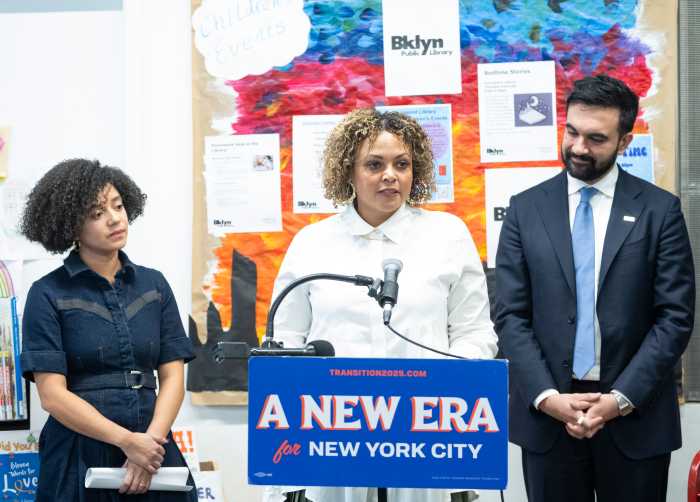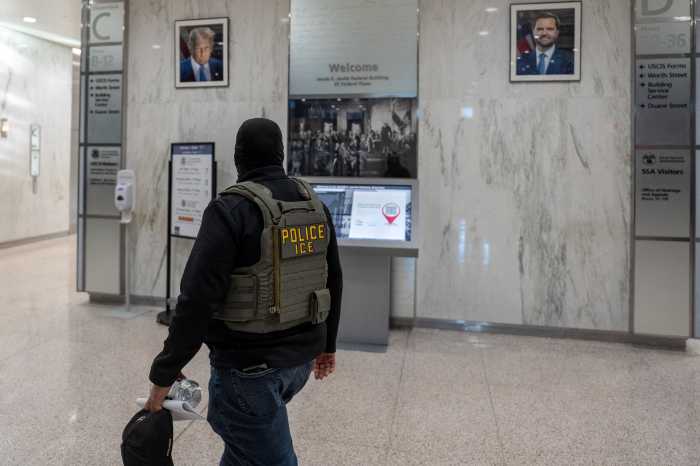For the month of February 2020, major crimes in New York City rose a whopping 22.5% when compared to the same period in 2019 – with much of the blame going to repeat offenders who have been released under the criminal justice reforms that release many felons without bail.
There was some good news as the murder rate dropped 20.0% from 25 in 2019 to 20. Rape reports also dropped 6% from 133 last year to 125 this year, officials said.
The city however saw a 7.1% increase in shooting incidents, from 42 from last year’s 45; Robberies increased 32.7 percent from 891 last year to 1,182 this year; assaults rose 9.2 percent as did burglaries rose 19.1 percent; grand larceny increased 23.9 percent and grand larceny auto jumped a whopping 61.6 percent.
In all there were a total of 7,632 major crimes for February versus 6,228 major crimes for the same period last year.
Mayor Bill de Blasio joined Commissioner Dermot Shea in calling on legislative action to correct some of the deficiencies in the criminal justice reforms, including giving judges discretion in setting bail or even holding people who a judge deems as likely to commit another crime or has committed other major crimes while awaiting the determination of a desk appearance ticket.
Some major crimes, including robbery in the third degree and most burglaries, grand larcenies and car thefts, are released from custody with a desk appearance ticket and are free to commit more crimes while awaiting their day in court.
Of those who were re-arrested, 99 were re-arrested for robbery, 65 for grand larceny, 65 for felonious assault and one for murder. These don’t include hundreds of misdemeanor crimes.
Like Wednesday’s budget hearing, Chief Crime Control Strategies Michael LiPetri again took center stage to provide data to prove that bail reform had gone awry. He said 482 people who been arrested for felonies such as robbery or burglary, accounted for 846 crimes. He said 35 percent, or 299 people were arrested in the seven major categories – “the same people were committing additional crimes after being released from custody on a DAT.”
Some of those same people released with a desk appearance ticket for a felony committed murder, rape, robbery, assault, burglaries and a variety of grand larceny including car theft. That is nearly triple the amount of those crimes committed in the same 58 days in 2019. All of the people were arrested for offenses that prior to Jan 1 and bail reform, could have landed them in jail.
“Last night we arrested an individual, charged with 25 burglaries, but because there was no evidence of a firearm, you can’t give him bail,” LiPetri said. “If you are charged with one burglary or 25, the subject matter remains the same and its the same as being charged with one. Part of the problem is with discovery and we are working with DA’s office to make cases. In the mean time, there are 18 deferred cases and despite being charged with six burglaries, that person is walking around as of 1 p.m yesterday.”
Lipetri said he was confident in his data and was incredulous that the NYPD had to keep arresting the same people for the same and sometimes more serious crimes.
“People initial re-arrested for non bail offense, 299 committed the seven majors, compared 109 of the seven majors last year – it’s the same group of people doing the same things over,” LePetri sighed.
Commissioner Dermot Shea, who was a proponent of criminal justice reform, says the laws have gone too far. He said some victims are being “re-victimized” as people are released with only a desk appearance ticket, or in some instances, cases are being deferred or even dismissed.
“There are victims every day that we are seeing and to them, it makes no sense and we have to explain to these victims,” Shea said. “What they (the victims) say is that it makes no sense.There is a whole series of serious arrests but they are mandated to be DAT’s. It has grown from 60 to 800 with deferrals at a very high rate. These same people committing the same crimes must be released without bail.”
Yesterday, Ralph Palladino, vice president of DC37 Local 1459 criticized the city for not moving more police officers out of desk jobs and to the field and fill those jobs with civilians.
The mayor said they are taking action to move more officers to the field and it’s “not just talk.”
Not talk, action on it, DC 37 right, several rounds, actually consistent effort to determine efforts, if more we can do, there is a limit, we will do it.
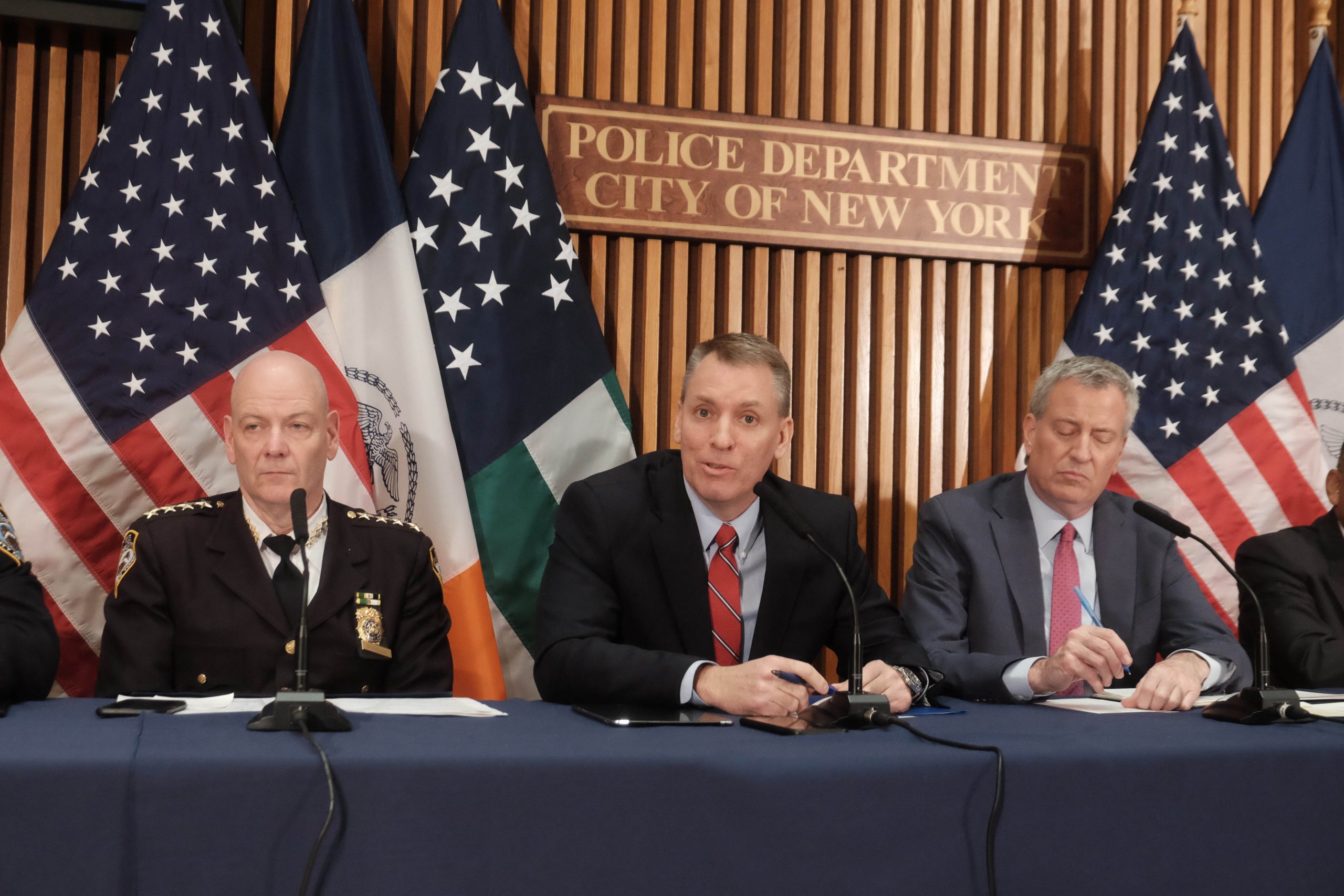
Some bail reform groups are accusing the NYPD of “manipulating statistics.”
“Some organizations are making a charge to be proactive but they are wrong — it’s a game and they should look at the statistics and people shouldn’t buy into this. Let’s just fix it,” Shea said.
Mayor de Blasio, a strong proponent of bail reform, acknowledged that changes needed to be made in the criminal justice system to stop this rising trend and recidivist criminal behavior.
“We are seeing major increases in property crimes in particular and while there is never one factor, there is a correlation in the change of the laws,” de Blasio said. “Bail reform, comes down to mandatory release versus discretion, Bail reform was well intentioned and there are good aspects, but it needs a few small fixes.”
As for whether he was optimistic that changes would be made on April 1, the mayor said he believes a system closer to New Jersey’s no bail system would work better, including giving judges more discretion to hold recidivists and anyone who poses a threat to the community.
“I am a believer in judicial discretion and the State Senate agrees,” de Blasio said. “New Jersey has an effective model of judicial discretion and there is certainly more than one way to solve a problem. The assembly, senate and governor are going back and forth, but the need to do something becomes stronger every day.”
Advocates on criminal justice have criticized the NYPD and are urging the mayor to leave the laws as they are. Public Advocate Jumaane Williams, a leading advocate of bail reform said it is too soon to judge the effects.
